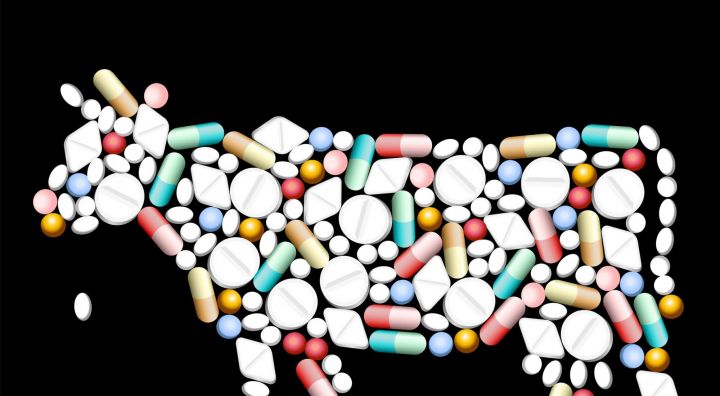Doctors have long known that people feel depressed when they’re ill with a cold or the flu. But it may be more than simply feeling bad. Inflammation, which is part of many illnesses and infections, has been found in brain cells and is being implicated as a cause of depression., one of the world’s most debilitating disorders. This creates the possibility of treatment with anti-inflammatory medications. Experts on the frontlines of this research discuss.
Guest Information:
- Dr. Ed Bullmore, Professor of Psychiatry, University of Cambridge
- Dr. Jeffrey Meyer, Director, Neurochemical Imaging Program, Center for Addiction and Mental Health and Professor of Psychiatry, University of Toronto
16-48 Depression and Inflammation
Reed Pence: Inflammation is familiar to all of us. It’s a major part of the immune system that protects our bodies. Dr. Ed Bullmore is Professor of Psychiatry at the University of Cambridge in the UK.
Dr. Ed Bullmore: A lot of times inflammation is a response to infection. I guess that’s the sort of classic example. So the body’s infected and the inflammatory response is part of the immune system’s reaction to infections trying to defeat the germs and restore the body’s integrity.
Dr. Jeffrey Meyer: Sometimes if someone, for example, has a scrap on their hand you may see some redness around that, and that redness reflects a recruitment of different cells of the body to come in and make factors which will then recruit other cells of the body and also the cells may change in terms of their function so as to help remove damage from trauma, or it could be fighting off an infection, it could be eating up that infection or secreting things that might harm that infection to get rid of it. Those are the sort of processes that could happen with response with inflammation.
Pence: That’s Dr. Jeffrey Meyer, Director of the Neurochemical Imaging Program at the Center for Addiction and Mental Health and Professor of Psychiatry at the University of Toronto. He and Bullmore say that while inflammation is essential to fighting off infection, we’re finding out that too much inflammation in the body is a very bad thing.
Bullmore: It can cause a number of disorders – rheumatoid arthritis, for example, is quite a common medical disorder that is increasingly understood to be driven, in part, by over activity of the immune system. But what we’re looking at is perhaps something a little bit different, which is the idea that too much inflammatory activity in the body can actually be disadvantageous in terms of brain function and mental function and might indeed represent a risk for depression. And it seems that there’s an ever stronger scientific evidence based suggest[ion] that bodily inflammation can be important for brain and mental function.
Pence: Inflammation causes autoimmune diseases such as lupus, inflammatory bowel disease, and psoriasis, as well as rheumatoid arthritis… and it’s also strongly linked to heart disease. Linking depression to inflammation as well is a whole new way to think about one of the world’s most debilitating disorders of the brain. Scientists have been considering a possible connection for some time because it simply makes sense. Bullmore says think about how you feel when you’re sick with a cold or the flu. Many people feel… depressed.
Bullmore: Infection is a very common cause of an inflammatory response we have known for many years that quite often after an infectious illness people may have a period of feeling a little bit low in terms of their mood, a little bit less active than normal. What we’re beginning to understand is that those psychological reactions to infection may represent the effects of inflammation.
Pence: Scientists have been collecting additional indirect evidence as well. They’ve checked people with major inflammatory diseases for depression.
Bullmore: It was noted and has been noted for a while that many medical disorders, including for example, arthritis, atherosclerosis, diabetes, all of which are associated with some inflammatory component, all of those disorders also are associated with a greater frequency of depressive illness than you would expect in the general population. People have also looked in the general population, there are studies looking at tens of thousands of people in the general population, and asking them, how do you feel, and then relating the self-reported symptoms of mood disturbance to simple blood tests that we can do to measure the amount of inflammation in the body. From those very big studies it’s emerged that there is a very robust association and people that have a bit more inflammation in their body will have significantly increased risk of depressive symptoms.
Meyer: And then as well, some treatments that augment inflammation, the body sometimes as a protective strategy in the body can be associated with risk for inflammation associated with depression. So for example, there are treatments for hepatitis that increase bodily inflammatory response that are associated with depression. Even if one gives, for example, vaccines and short-term interventions that increase bodily inflammation they are associated, at least temporarily with depressed mood.
Pence: All those studies show an association between inflammation in the body and depression. But until recently, we didn’t have the tools to show that brain cells as well as body cells could be affected by inflammation. Now Meyer’s lab is doing just that.
Meyer: So what we did is in our study we applied this new technology the way that [unintelligible] come out to do the first study to look at 20 people in the midst of a clinical depression and 20 people in the midst of health. We found that the inflammation marker on average was elevated 30 percent in those with clinical depression as compared to those in health. What we found was that the inflammation was actually present throughout the areas of the brain, including areas of the brain that would be influencing mood control. But given that was throughout the brain that would suggest that process that precipitated in being throughout the brain might have a widespread effect, but presumably it’s importance is in the areas that control mood.
Bullmore: That’s not to say that everybody that becomes inflamed will inevitably become depressed as a result of that. It’s also not to say that everybody that’s depressed has an underlying inflammation. If we look at depression it seems that something like a third of patients with depression will have some degree of inflammation going on in the background that might be contributing to their symptoms. It’s not an explanation for everybody’s depressive experience, but it may be an important contributing factor in about a third of patients.
Pence: However, that doesn’t prove cause and effect. But Bullmore says it’s coming.
Bullmore: There is increasing evidence for that. There’s some evidence from animal studies, animal experiments. If you make an animal inflamed, for example, by exposing it to an infection, then very often that animal will demonstrate behaviors that look a lot like depression. Of course, it’s very difficult to say whether an animal ever really is depressed in the same way that a human might be, but you can certainly see animals changes into their sleeping behavior, their eating behavior, they may become more socially isolated, less civically active. In many ways they are behaving as if they were depressed and we can see that quite clearly in some of those experiments as a direct result of an inflammatory challenge. Those experiments are important because they give us insight to causality. The animal is inflamed and then the behavioral changes follow, which suggests that the inflammation is directly causative rather than just a passenger or a coincidental finding.
Pence: But it’s not just animals. There’s a little bit of cause-and-effect evidence in humans as well.
Bullmore: We can look back and find individuals that were inflamed peripherally in the body that was an excess of inflammation and we can show that that was the case before they later became depressed. So in those kinds of studies where you can see inflammation happening before the depression arises that makes it more likely that the inflammation is causative rather than just a correlate or a coincidental finding that goes together with inflammation.
Pence: What’s more, patients with treatment-resistant depression are also more likely to have inflammation in the body.
Bullmore: Treatment-resistant depression means that these patients will not have responded well to conventional antidepressants or psychological treatment. So they will have been seeing a psychiatrist or general practitioner for some time, have tried a number of different treatments and still be experiencing symptoms of depression. Those particular patients who are not so responsive to the treatments we have already available seem to have a particularly high risk of background inflammation.
Meyer: What we are doing right now is a follow-up study to look at people who have treatment resistant depression and we are looking to see if those who have the highest levels of inflammation and treatment resistant depression might benefit from an anti-inflammatory treatment. And we’re also assessing to what extent anti-inflammatory treatments are good at reducing inflammation of the brain. It’s been assumed that most any anti-inflammatory treatments that work in the body can also work in the brain, but it hasn’t been proven, so we are doing work on both fronts.
Pence: But why would inflammation in the brain cause depression? We’ve barely had time to see that inflammation occurs in the brain at all… so for now, we have only theories. But Bullmore says the way antidepressants work suggests what may be going on.
Bullmore: One possible explanation for that is that inflammation may act in the brain to change the way that the neurotransmitters in the brain, like serotonin, which are important for conventional antidepressants, those neurotransmitters may be changed in terms of their metabolism by inflammation. So if you’ve got a bit of inflammation going on in the background it may make your brain somewhat deprived of serotonin or less able to benefit from a drug treatment that is targeted on serotonin signaling in the brain. That’s one possible explanation for the association that we see between inflammation and treatment resistant depression specifically.
Meyer: We know that there are some kinds of processes with inflammation that will remove, say for example, a neurochemical that becomes serotonin in the brain, So there’s one mechanism by which inflammation can divert the precursor to serotonin into becoming something that’s not serotonin. That’s one sort of mechanism that’s been attributed. Another is that the inflammation makes signalers called cytokines and the cytokines can have influences that can lead to behaviors of depression. As well we know that there are prostaglandins, which is another signaling cascade in the brain that’s affected by inflammation that can also contribute to depressed mood.
Pence: Knowing all that could help researchers target treatments much more closely, but for now, something as simple as an over the counter pain reliever might even help. Bullmore and Meyer say there’s some evidence that mood improves among people who have inflammatory diseases when they take medications like aspirin or ibuprofen. However, it’s not proven that those drugs work on inflammation in the brain.
Meyer: We are also looking at low cost blood measures at the same time that we do the brain scans to see if we can find inexpensive marker in the blood that may be predictive of inflammation in the brain. So it might be in the future that if someone has treatment resistant depression they can just go to their doctor’s office, have a blood test to see of there’s a high probability of having brain inflammation and then consider an anti-inflammatory treatment.
Pence: All in all, Meyer says these new findings may revolutionize how we think of depression… and how we treat it.
Meyer: I’m very excited about it. I think it will open up a lot of different potential ways to treat clinical depression and prevent potentially clinical depression as well. So it’s definitely a new way of thinking. When you consider that 20 years ago clinical depression was almost viewed as a non-organic illness, or 25 years ago, meaning not having biological basis, things have come a very long way. The inflammation direction has a lot of exciting potential because we have a lot of therapeutics that are available ad inflammatories or inflammation modulating treatments, so it’s exciting because there’s potential to help people that might not have been there before.
Pence: You can find out more about all our guests through links on our website, radiohealthjournal.net. You can also find archives of our segments there, as well as on iTunes and Stitcher.
I’m Reed Pence.
Sign up to receive email updates
Enter your name and email address below and I’ll send you periodic updates about the podcast.











Leave a Reply